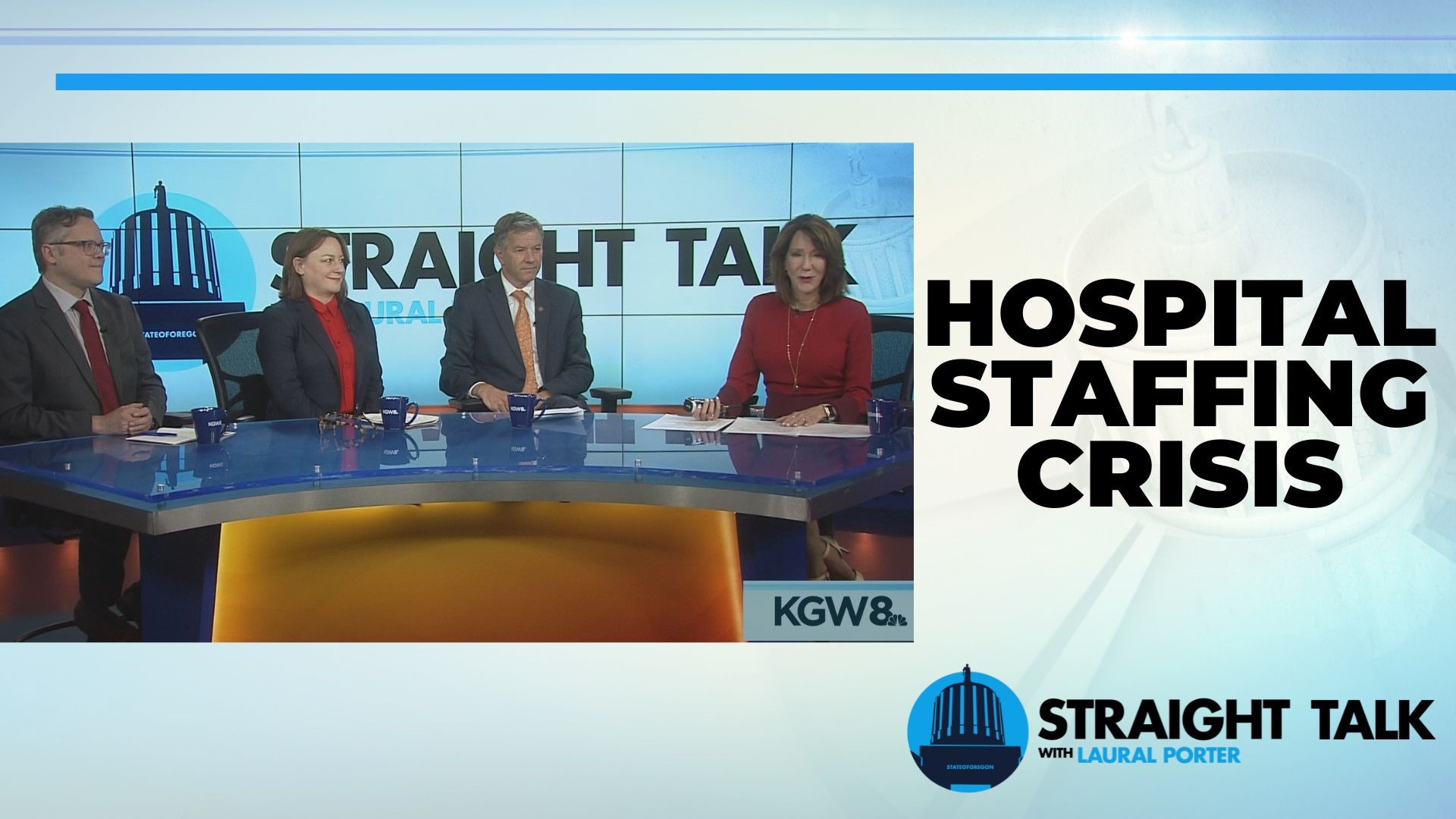PORTLAND, Ore. — It wasn't long ago that communities across the country spent each evening stepping outside to ring bells and bang pots and pans as a boisterous show of support for the health care workers who were the vanguard against the pandemic ravaging the world. Now many of those workers, especially the nurses, say the conditions they're working in are untenable, and what they need now is real and substantive change.
Currently hospitals are dealing with an unprecedented combination of staffing shortages, a shortage of available hospital beds and a severe financial crisis.
"It's unprecedented, but it was not unforeseeable," said Matt Calzia the director of nursing practice and professional development with the Oregon Nurses Association.
"ONA members have been raising concerns about issues at the bedside, about working conditions for years — before the pandemic."
The pandemic exposed vulnerabilities in the health care system, Calzia explained, and exacerbated existing problems. He said health care workers are not only exhausted but distressed and feeling "moral injury" about the state of their workplaces — about not being able to provide the care that patients need because of low staffing.
"The problems of the health care systems are the burden of the front line caregivers," Calzia said.
"We're tired. We've been shouldering the burden of our broken health care system for a long time," said former state Rep. Rachel Prusak, who works as a family nurse practitioner.
Nurses are dealing with depression, anxiety, and feelings of shame for needing to take a break, she said. About 61% of nurses said the pandemic negatively impacted their mental health and 15% have even had recent thoughts of suicide, according to the American Federation of Teachers’ Healthcare Division.
Prusak said she originally ran for office to bring her professional experience to Salem to try and develop policy solutions. She said investments need to be made upstream in the health care system — in primary care, public health and mental health, in order to keep people out of the hospital who don't necessarily need to be there.
Nurses spend the most time with patients, Prusak explained. They're looking for changes in conditions and anything that might signal alarm. When they have too many patients, they aren't able to be as vigilant. Research has shown that the higher a patient ratio is associated with an increased risk of mistakes, including those that lead to death.
"We're also seeing an unprecedented amount of turnover," said state Rep. Rob Nosse, who represents Oregon's 42nd House district, which encompasses southeast and some of northeast Portland.
According to Nursing Solutions, Inc, there is a 27.1% turnover rate for hospitals nationwide, with 80% of nurses agreeing that their units are understaffed. The Oregon Nurses Association says that staffing levels are the primary cause of high turnover.
In Oregon specifically, 50% of nurses said they're caring for too many patients on most of their shifts. About 99% said their units are sometimes or never staffed appropriately.
The U.S. Bureau of Labor Statistics reported 55,000 fewer registered nurses were working in 2021 compared to 2020.
Overall, nurses want to leave their shift feeling like they've cared for their patients to the best of their ability, Calzia said. In order to get there, they need safe staffing levels, and the ability to take their meal and rest breaks during their long shifts.
Nosse is sponsoring House Bill 2697, which would mandate that the Oregon Health Authority enforce minimum staffing levels, with penalties for ongoing violations. It would also close loopholes in current law so that nurses can get their meal and rest breaks.
Supporters are looking to establish mandated ratios between nurses and patients, so nurses are not burdened with too many patients at once, especially when other nurses are off during breaks, sick time and vacations.
"Hospitals have run really lean for a long time," said Calzia. "And they deviate from these standards on a regular basis because they've run their staffing so incredibly lean."
One enforcement mechanism, Nosse said, that nurses want to put in place is the ability to sue hospital systems for not providing standardized staffing levels, along with increased fines against the hospitals for violations.
"Hopefully that means we staunch the bleed," Nosse said, "and that people come back to work at the hospital, or they want to continue to work there."

